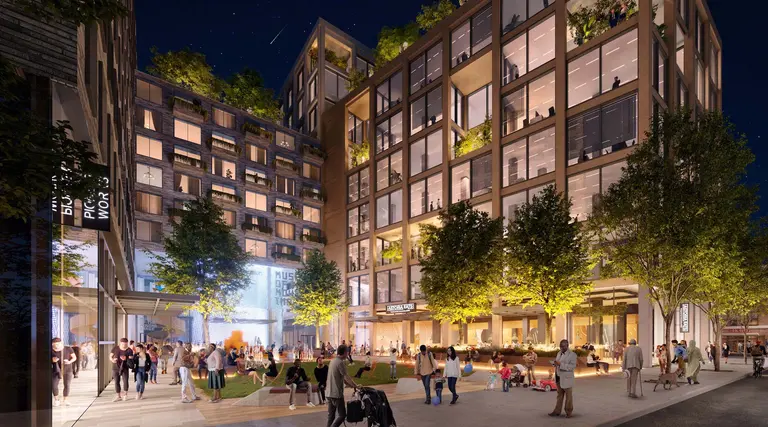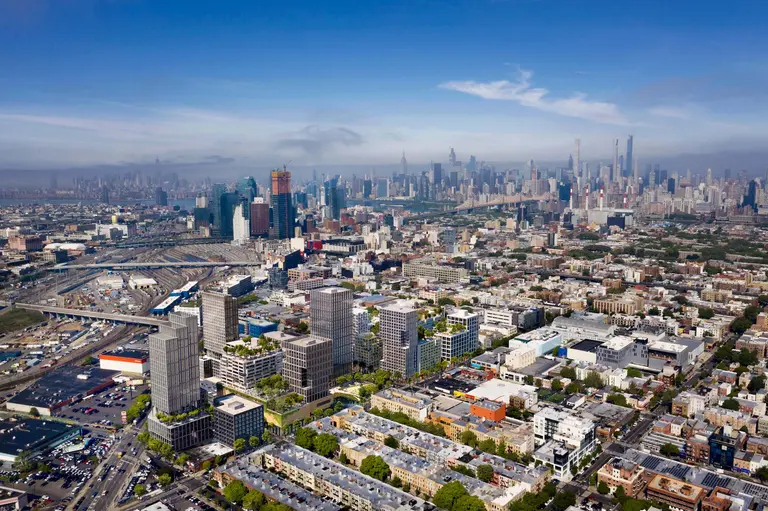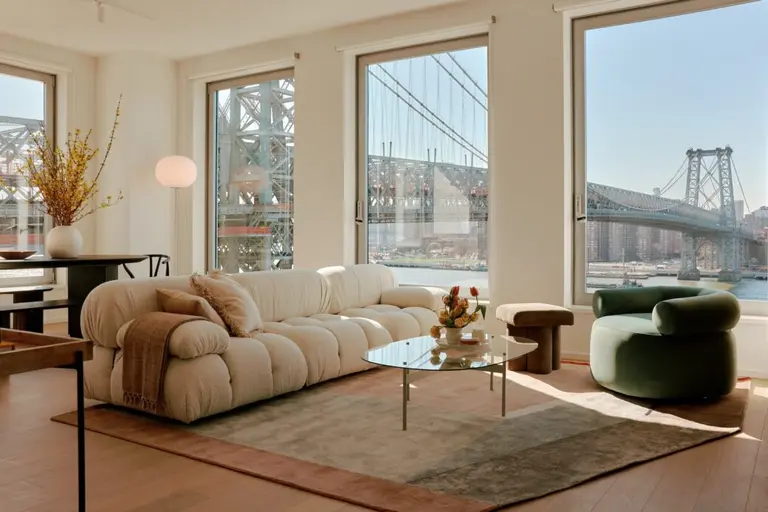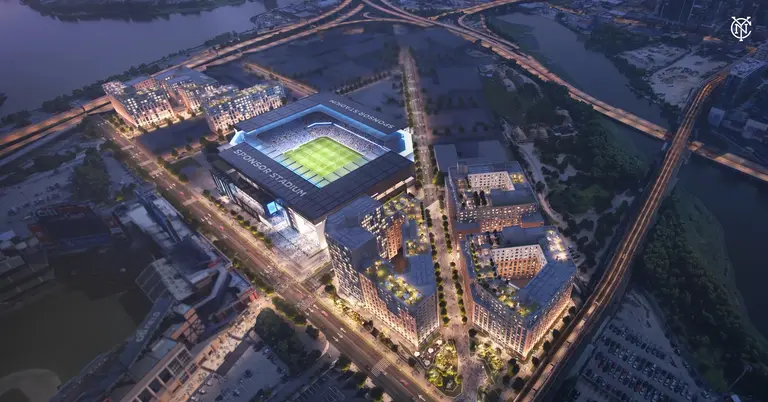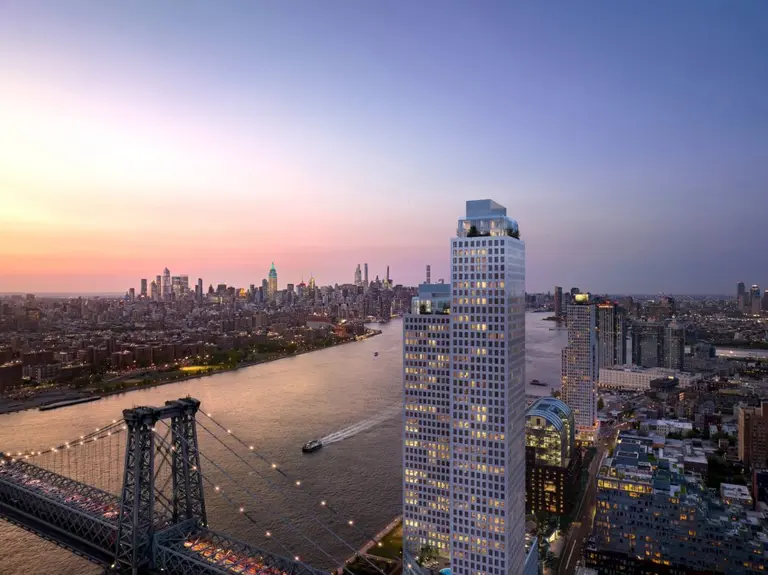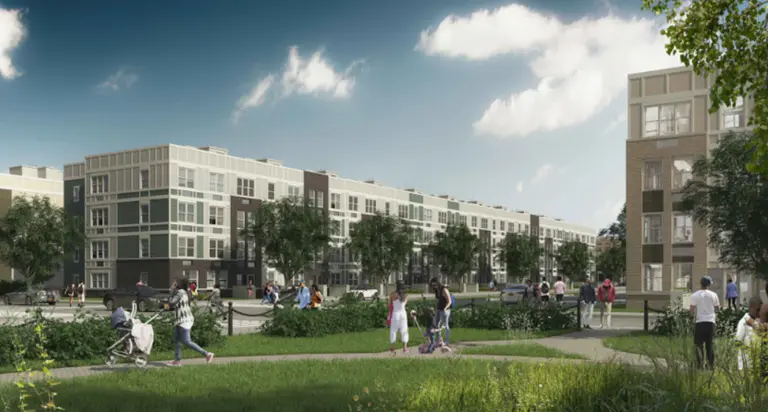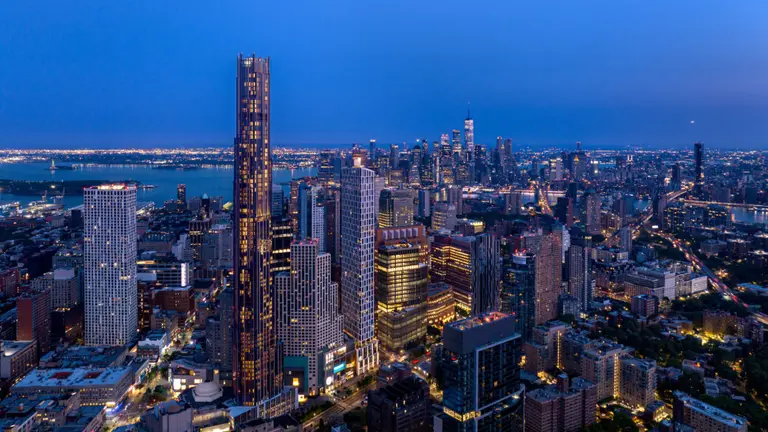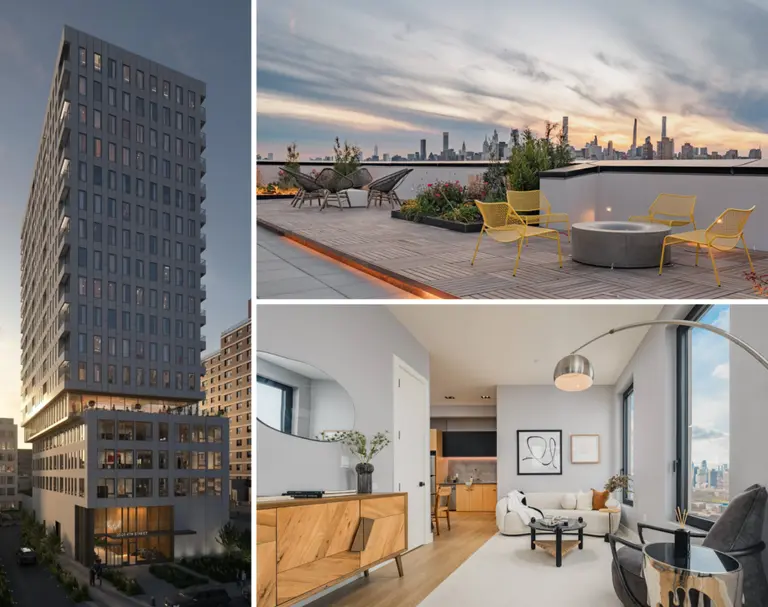Two major projects that would bring 3,200+ affordable homes to Brooklyn and Queens get key approval
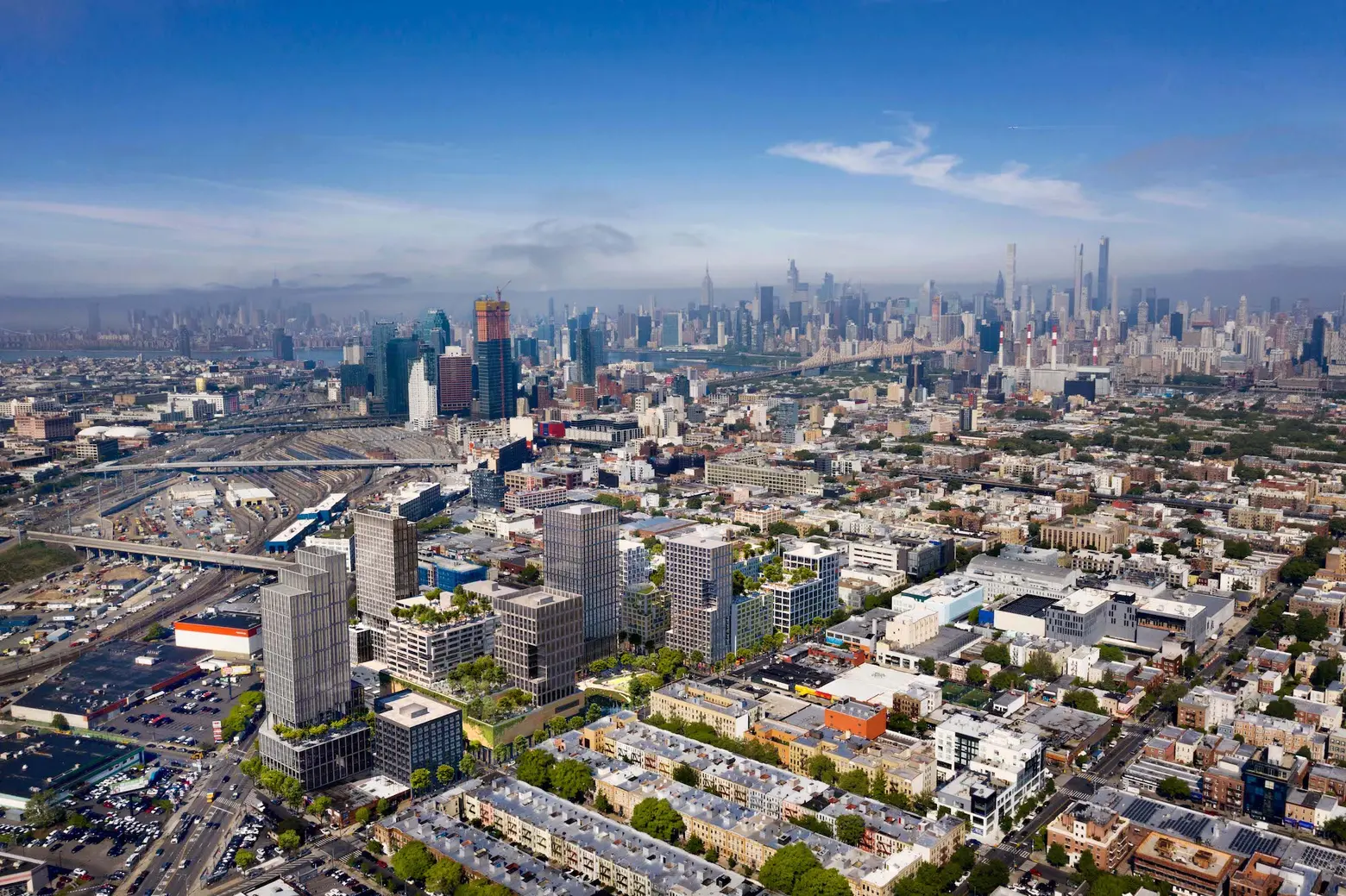
Rendering of the proposed Innovation QNS district. Image courtesy of VERO Digital
Two major housing developments proposed for Brooklyn and Queens are moving forward. The New York City Council Committee on Zoning and Franchises on Thursday voted to approve rezonings Innovation QNS and Innovative Urban Village, which together would create more than 5,000 units of housing, 3,200 of which would be affordable. The two developments also include over 1,600 apartments for extremely or very low-income households.
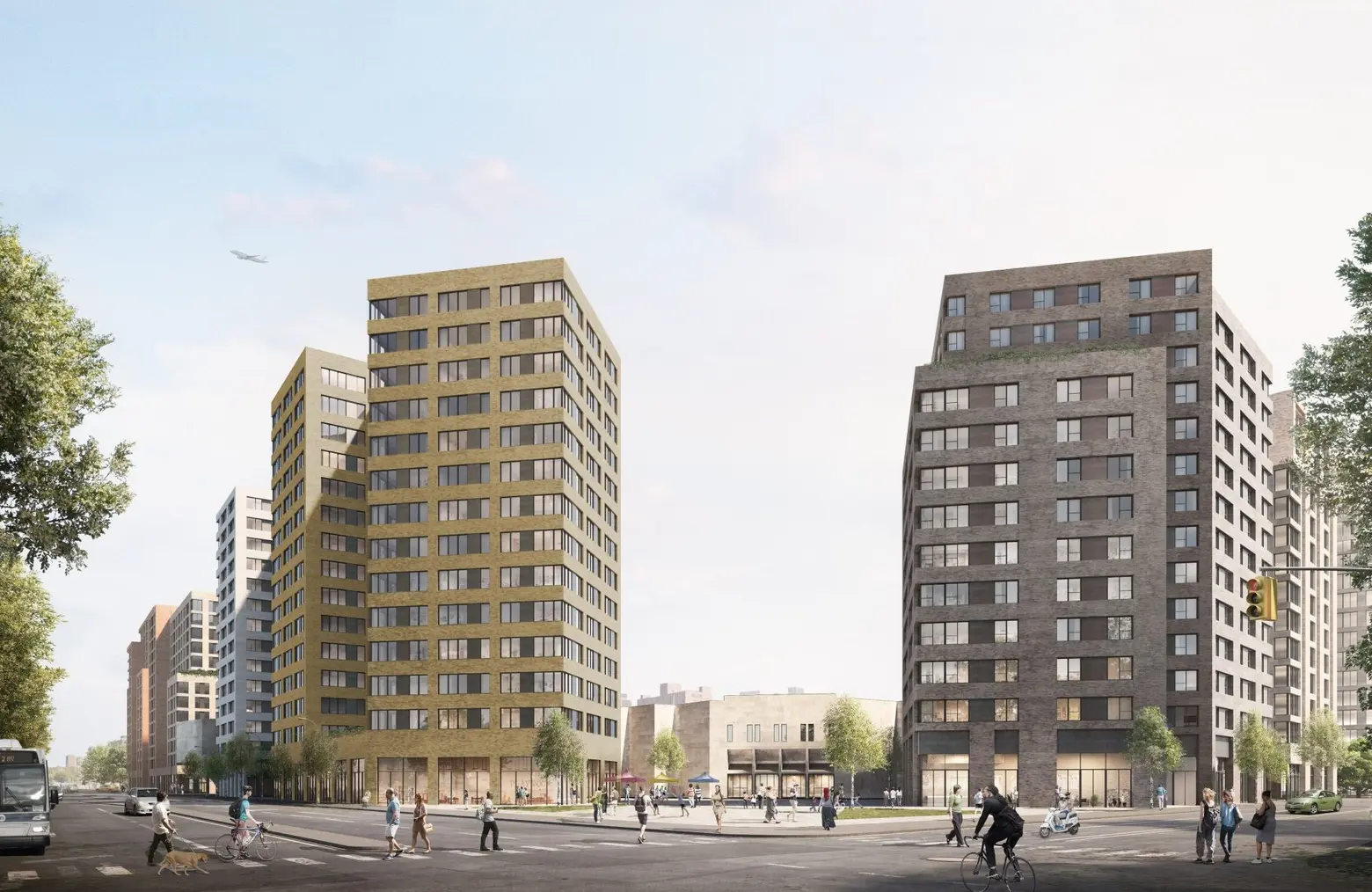 Rendering of the proposed Innovative Urban Village district. Image courtesy of Practice for Architecture and Urbanism
Rendering of the proposed Innovative Urban Village district. Image courtesy of Practice for Architecture and Urbanism
Innovation QNS is a new mixed-use housing development proposed for five blocks in Astoria, spanning from 37th Street to Northern Boulevard between 35th and 36th Avenue.
Developed by a joint venture consisting of Silverstein Properties, Kaufman Astoria Studios, and BedRock Real Estate Partners, the $2 billion, 2.7 million square foot project would transform the area’s underutilized industrial and commercial buildings, creating 3,200 new housing units, more than 1,400 of which would be designated as affordable.
As 6sqft previously reported, most of the industrial and commercial properties in the area are already owned or operated by a team of developers.
As part of the development, apartments would be available to individuals earning $28,020, and for families of three earning $36,030. The project would bring more deeply-affordable housing units to the area than has been created in total over the last eight years, according to the City Council.
Designed by ODA Architecture, the district would also include two acres of open space, community space for non-profit organizations, retail spaces, and room for small businesses and startups.
Located in East New York, Innovative Urban Village is another proposed mixed-use housing development that would create approximately 2,000 affordable homes, 200 of which would be reserved for seniors and another 100 for homeownership opportunities.
Envisioned by neighborhood stakeholders the Christian Cultural Center, the development’s over 1,100 rental units, or 60 percent of the total units, would be reserved for extremely and very low-income households. Individuals earning between $28,020 and $46,700, or families of three with an income between $36,030 and $60,050 would be eligible for the units.
The 750 remaining units would be reserved for low-income residents, and 100 for homeownership opportunities to be used by moderate-income households earning 80 to 93 percent of the area median income.
The district would include a 24/7, seven-day-a-week daycare center, a cyber cafe, a workforce training center, a grocery store, a performing arts center, public open space, and shuttle service to subway stations.
“Today marks a new day for affordable housing in New York City. On the heels of yesterday’s announcement of plans for 2,500 affordable homes in Willets Point, the City Council’s actions today move the ball forward on thousands more,” Mayor Eric Adams said, also referring to the recently approved project that will bring a soccer stadium and 2,500 affordable homes to Willets Point in Queens.
“The unanimous votes in support of all three of these projects speak volumes. We have a severe housing shortage at the root of our affordable housing crisis, and the only way to solve it is to build more housing — especially affordable housing.”
Innovative Urban Village was first proposed by the Gotham Organization and the Christian Cultural Center as a plan to build rental units available to New Yorkers earning anywhere between 30 and 120 percent of the area’s median income, according to The City.
According to data compiled by the Furman Center in 2019, this requirement would disqualify more than half of all the area’s households based on income.
Brooklyn Council Member Charles Barron negotiated with developers to lower the income eligibility requirements to make the affordable housing units more accessible to residents of the neighborhood. After years of negotiation and community feedback, the developer lowered the income limits to between 30 and 80 percent of the area median income.
Innovative QNS had faced similar opposition early on due to what Queens Council Member Julie Won cited as insufficient affordable housing, according to The City. Won initially set a goal of having 55 percent of the project’s units designated as affordable housing.
Following extensive negotiation, Won approved the project due to improvements to the development’s number of affordable housing units, despite falling short of her previous goal of 55 percent. In a statement released following the City Council committee vote on Thursday, Won said a deal was reached for 1,436 permanently affordable units, with 500 units at 30 percent AMI and 157 units for formerly homeless New Yorkers.
“This vote is only a preliminary approval of this project,” Won said. “We’ve been negotiating daily to secure unprecedented levels of affordability for my immigrant and working-class community.”
Won added: “I am diligently finalizing negotiations for commitments from the developer and Mayoral administration. As the council member, I will utilize every accountability measure to ensure that our community wins are actualized.”
The projects will head to the Council’s full Land Use Committee next week, followed by a final vote by the full Council if it passes.
RELATED:
- Proposed $2B mixed-use district with 2,800 new apartments in Astoria moves forward
- $2B project in Astoria calls for massive mixed-use district with 2,700 housing units
- NYC’s first professional soccer stadium will open in Queens
- A megachurch in East New York will become an ‘urban village’ with 2,100 affordable apartments
